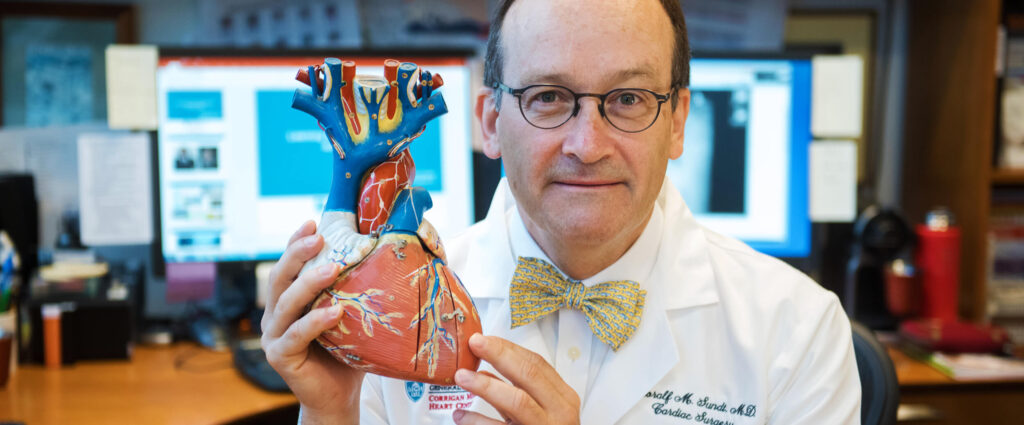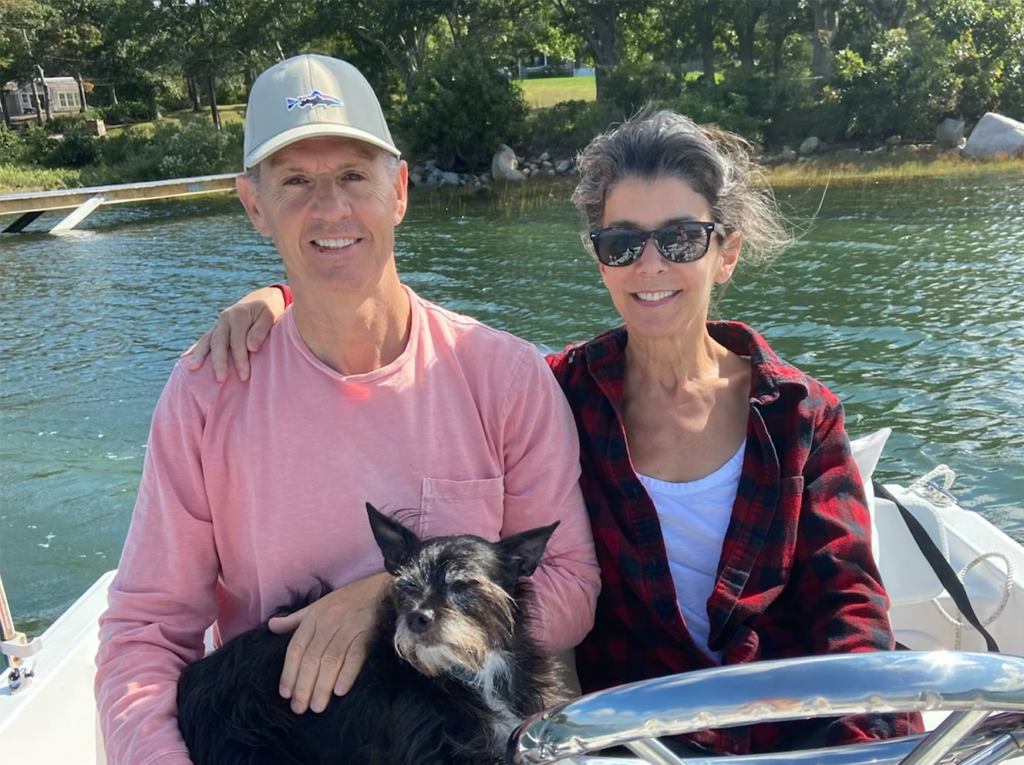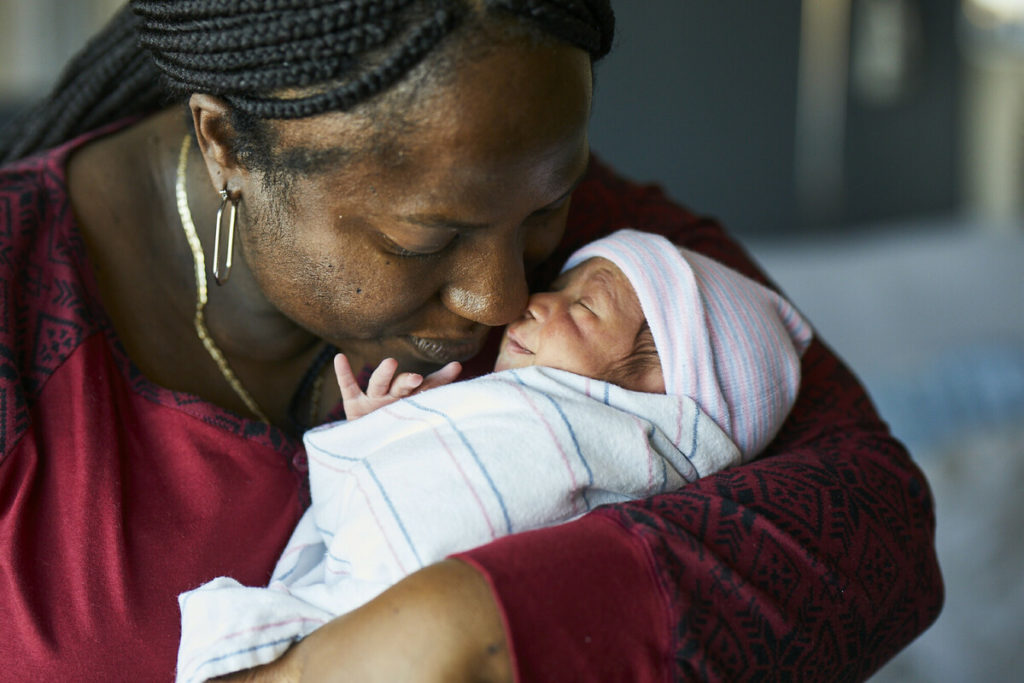This story was first published here.
When Katherine and her husband Shawn learned they were pregnant with their first child, the news brought mixed emotions. Katherine had a heart valve condition called rheumatic mitral valve stenosis. It threatened both her life and the life of her unborn child during pregnancy.
“We were happy, but also worried about my health. It was kind of sad that we couldn’t be thrilled about the news because of my heart condition,” she explains.
After her previous medical team recommended she consider terminating the pregnancy for medical reasons, Katherine decided to get a second opinion. She consulted with Ignacio Inglessis-Azuaje, MD, an interventional cardiologist at Massachusetts General Hospital and Nandita S. Scott, MD, cardiologist and co-director of the Corrigan Women’s Heart Health Program. Dr. Scott helped establish the Cardiovascular Disease and Pregnancy Program — a program that provides multidisciplinary care for cardiac disease during pregnancy — at Mass General’s Corrigan Minehan Heart Center.
After reviewing Katherine’s case with a multidisciplinary team, Drs. Inglessis and Scott told Katherine that she qualified for a percutaneous balloon mitral valvuloplasty, which widens heart valves to improve blood flow. While the procedure had risks, the team was confident they could perform it safely — and they succeeded. Katherine was able to continue the rest of her pregnancy and gave birth to a healthy baby girl named Amari five months later.
“We are so grateful for these compassionate and very talented doctors and their teams. Because of them, we have our beautiful healthy baby with us right now,” says Katherine.
A Diagnosis Stemming from Childhood Illness
Originally from the Philippines, Katherine was diagnosed with rheumatic mitral stenosis after a childhood illness. Rheumatic mitral stenosis occurs after a fever from an untreated strep infection damages the heart, and is more common in developing countries.
“If you don’t have access to the right treatment for the strep infection, then you can get acute inflammation that damages the heart valves,” Dr. Scott explains.
Mitral stenosis narrows the heart’s mitral valve opening, which restricts the amount of oxygenated blood flowing through the heart. It can also cause fluid to build up in the lungs.
“As a kid, I would pass out in the middle of the day when the weather was hot,” says Katherine. “I would get sick a lot. I have shortness of breath and get tired really easily.”
A Turn for the Worse
Katherine was initially treated for mitral stenosis in the Philippines, and she moved to the United States as an exchange student in 2017. After meeting Shawn, she moved to Massachusetts in 2020. When she found out she was pregnant, her stenosis symptoms took a turn for the worse. “Even if I took it slow walking up the stairs, I would feel nauseated and weak,” she says.
“When you’re pregnant, your heart rate increases, and your blood volume goes up. Mitral stenosis itself is probably one of the worst valve conditions you can have when you’re pregnant,” Dr. Scott notes. “It can cause heart failure and arrhythmias like AFib,” which are serious complications during pregnancy.
Katherine was prepared to end her pregnancy, if necessary, but hoped she wouldn’t have to take that step. She says her appointments with Dr. Inglessis and Dr. Scott were a huge relief. “I told Shawn, I wanted to talk to Dr. Inglessis. If he thought doing the surgery would be too risky for me, I was ready to let go and terminate it. Dr. Inglessis gave us the first glimpse of hope since we found out I was pregnant.”
Dr. Scott says that Mass General was able to offer expanded treatment options due to their multidisciplinary expertise. “Her previous care team wasn’t necessarily wrong, because her pregnancy was certainly high risk. But the benefit of our program is, we have more than a decade of lots of provider experience, nursing excellence, and teamwork, and this is not the first time we’ve done this. We could make this happen,” she explains.
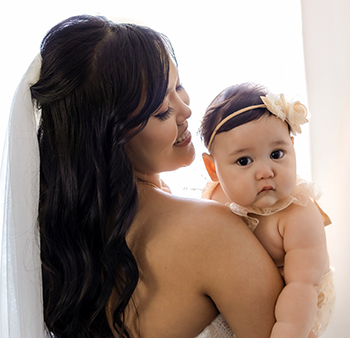
Katherine’s case was evaluated by a high-risk pregnancy team, including maternal-fetal medicine specialists from the Department of Obstetrics and Gynecology (OB/GYN), members of the Women’s Heart Health Program team, anesthesia, nursing and interventional cardiology.
“Labor and delivery can prove challenging for a healthy heart, so dealing with a repaired heart requires a wide range of expertise and regular communication between departments,” says Jeffrey Ecker, MD, a high-risk obstetrician and chair of OB/GYN. “Multidisciplinary care of that sort is one of the true calling cards of Mass General.”
Katherine also underwent testing to make sure her valve was a good candidate for a procedure. “We want the ideal outcome, where the pregnancy is completed in a safe way for both the mother and baby. We really value the assessment that comes from the collaboration with our team members. That’s something that is quite unique about Mass General,” says Dr. Inglessis.
“To carry the pregnancy forward, we needed to open that valve a bit more, and improve blood flow through the valve. Dr. Inglessis was very open to the whole discussion, and he thought that doing a procedure was feasible,” Dr. Scott explains.

Ultimately, the decision was up to Katherine. “Pregnancy is such a personal thing. Whatever her decision, our job is to support her through it, and do what we think is best for mom and baby’s survival,” Dr. Scott says.
After speaking with Drs. Scott and Inglessis, Katherine felt comfortable opting for the procedure. “Dr. Scott was always attentive and a good listener. She made sure that I got the best team of doctors and the care that I needed once we decided to go through the pregnancy,” she says.
Working Together for Katherine
Dr. Inglessis performed the percutaneous balloon mitral valvuloplasty on Katherine when she was about 16 weeks pregnant. This minimally-invasive procedure uses a small balloon to increase the opening of the mitral valve. Dr. Inglessis threaded a catheter (a thin and flexible tube) up through a vein in Katherine’s leg and into her heart to perform the procedure.
Throughout the valvuloplasty, Dr. Inglessis worked closely with his cardiology and maternal-fetal medicine colleagues. “There isn’t a step in the procedure where I haven’t gotten feedback from the broader team. We used an echocardiogram, or an ultrasound of the heart, to gauge the results of the procedure as it was performed,” he says. The team also collaborated on the choice of safe medications for pregnancy, including anesthesia and blood thinners.
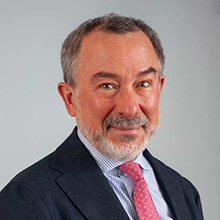
Dr. Inglessis normally uses fluoroscopy guidance to guide the catheters through the body, but this produces extra radiation, which should be avoided in pregnancy. For Katherine, Dr. Inglessis used additional lead aprons to shield her belly and relied on his more than 20 years of experience to guide the catheters by feel instead.
Ultimately, the procedure was successful and helped improve the function of Katherine’s heart. “The main objective was to get her through the pregnancy without burdening the heart, endangering her life and the life of her baby,” Dr. Inglessis says. “This was the highest stakes of any procedure one can have as an interventional cardiologist, and it makes it all the more gratifying to see that it’s a good outcome. It was very rewarding, and a blessing to be part of this procedure.”
“Dr. Inglessis was an amazing surgeon, and he is incredible at what he does,” says Katherine.
Katherine’s Recovery and Delivery
After the procedure, and following an additional echocardiogram and fetal monitoring, Katherine was discharged to continue her recovery at home. As her pregnancy progressed, Katherine met with Dr. Scott and the maternal-fetal medicine team regularly.
“We watched her very closely and worked with the maternal cardiology group to figure out the best mode of delivery,” says Marti Soffer, MD, MPH, Katherine’s maternal-fetal medicine specialist.

In addition to meeting about specific patients like Katherine, maternal-fetal medicine and maternal cardiology meet monthly to discuss cases, care plans and the latest research. Together with Dr. Scott, Dr. Soffer developed a plan to get Katherine safely through labor and delivery.
“For Katherine, it was important to her to feel like she was an average patient,” she says. “For us, that meant being prepared for all possibilities — because labor doesn’t follow any rules.” In the weeks leading up to Katherine’s due date, the team worked to ensure all the pieces were in place to cover any potential complications.
“They were very thorough in explaining the birth plan to me and my family,” Katherine says. “We were always aware with what was going on with me and our baby, and the team was quick to respond when we had concerns.”
At 39 weeks, Katherine was induced and gave birth to a healthy baby girl named Amari.
“In the end, she delivered on the regular labor floor — where she wanted to be,” Dr. Soffer says.
Katherine and Shawn got married in August 2023 with their daughter by their side. After settling down on the south coast of Massachusetts, they are enjoying their lives as a family of three. Dr. Scott and the team at Mass General continue to care for Katherine’s mitral valve stenosis, including monitoring her condition and prescribing medications.
“It felt like a miracle. We call Amari our miracle baby, and here she is now making us happy every day. She’s been the greatest blessing for the entire family,” Katherine says.
To learn more about the Corrigan Minehan Heart Center, please contact us.
To learn more about OB/GYN and Maternal-Fetal Medicine, contact us here.

